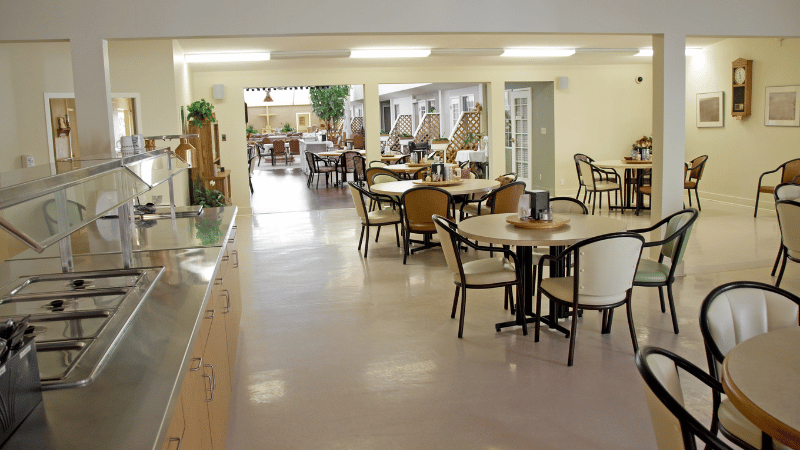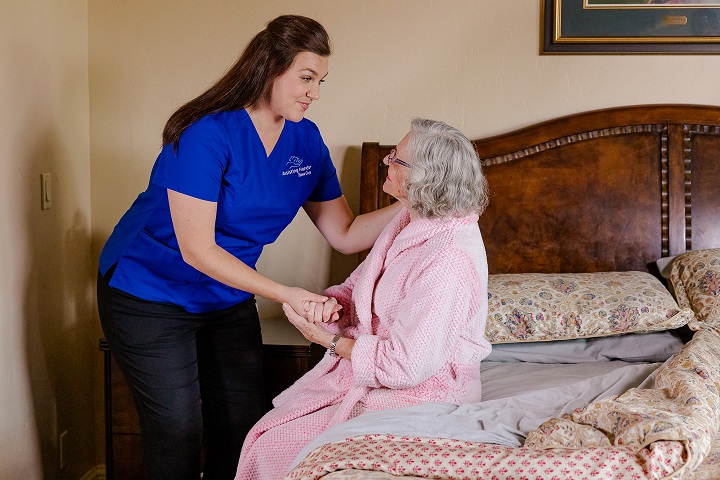
Planning for future housing should be on a senior’s to-do list early in life. Delaying decisions about where to live and with whom can leave older adults with fewer choices. When evaluating the best senior housing options, consider these six possibilities.
1. Retirement Communities
The most well-advertised and familiar place for older Americans is the retirement community. Older adults of all age ranges reside in these socially active communities, where autonomy is paramount and group activities keep aging residents thoroughly occupied, stimulated, and entertained.
Living arrangements fall on a spectrum, from retirement villages to active adult communities and senior apartments. Retirement communities, depending on where they are located, offer either suburban or urban living. Housing meets the needs of upscale clientele, while others accommodate middle markets.
Independent living communities, also known as retirement villages or active adult communities, give their residents private living quarters. Seniors have access to onsite theaters, restaurants, and golf courses. Planned social activities and excursions prevent isolation and loneliness in their residents.
Senior apartments are another form of housing available to the elderly. Age-restricted complexes give older adults amenities, such as a pool or a gym. However, senior apartments are somewhat limited in their services when compared to retirement villages, as they do not offer transportation or meals.
2. House Sharing
Sharing a home with another individual in the same age demographic provides financial benefits, including halved monthly bills. Renting a property with another retiree is a welcome alternative to moving in with a family member, where relationship dynamics can quickly become complicated.
Seniors can find elderly roommates on websites, such as Silvernest and Senior Homeshares. When considering a potential roommate, choose someone who is at a similar level of self-sufficiency. The risk with house sharing is that one senior can decline in health, forcing the other to serve as caregiver.
3. Life Plan Communities
These versatile communities, also known as continuing care retirement communities, offer seniors a range of living options that cater to their needs as they age. Older adults can start in independent living, progress to assisted living, and finally receive skilled nursing care on the same campus.
The tiered approach in life plan communities is ideal for many older adults. However, contracts can stipulate a purchase of a property in the community or require an entrance fee along with monthly charges. Fees can stay the same or go up when care needs increase. Read the terms carefully.
4. Assisted Living
While retirement villages are geared toward autonomous adults, assisted living facilities are a recommended housing solution for older people who require some assistance with the activities of daily living. Staff can help with personal hygiene tasks, housekeeping, and medication reminders.
Residents live in individual apartments and enjoy opportunities to meet in communal spaces, like the dining room or recreational area. Assisted living facilities are equipped to meet the care needs of seniors with varying levels of functioning, including people with dementia or other cognitive impairments.

5. Adult Children’s Home
Aging parents often assume they can move in with their adult children. Whether seniors move in with their grown kids or the reverse, it can be a financial win for both parties. Living expenses are immediately slashed and grandchildren enjoy a live-in babysitter.
Seniors who live with their adult kids ward off loneliness and the associated health risks. However, this is not always the case, especially when the adult children are gone for work. Further, a senior’s impaired mobility or declining health may prevent them from participating in family outings.
6. Aging in Place
The majority of older adults wish to spend the rest of their years in their own home. Aging in place is a source of security and familiarity, considering seniors live in comfortable surroundings and continue to enjoy the people and places within their beloved community.
Living at home is safe for seniors when modifications are made. Move the bedroom to the first floor to avoid the risks and struggles of walking up the stairs. Install grab bars in the bathrooms to facilitate greater stability and support. Add extra lighting for seniors whose vision is poor.
Seniors who plan to age in place are advised to seek local resources and support, such as home care agencies in the area. Professional caregivers are vital to living independently at home, as they provide the support older adults need to complete essential household tasks and self-care duties.
Caregiver support may be less needed at first but becomes critical as the senior’s health declines. Extra help may be necessary to cook nutritious meals or use the bathroom. As memory slows, medication reminders become lifesaving. Plus, caregivers provide transportation when driving is no longer an option.

Of all the best housing opportunities for the elderly, many opt to remain at home. When this is the case for your aging loved one, turn to Assisting Hands Home Care for reliable, compassionate and hands-on elder home care. We customize care plans to fulfill unique care needs.
The non-medical care services our home care agency provides are comprehensive and allow an elderly care recipient to live independently and with dignity. Professional caregivers are available to help with meal preparation, grocery shopping, medication reminders, light housekeeping, and mobility assistance.
Assisting Hands Home Care offers numerous flexible care options. Seniors have access to caregivers who provide 24-hour care, live-in care, post-surgical care, hourly care and hospice care. Families rely on our reliable respite care. Our companion care is crucial to promoting the social health of the elderly.
Families trust our licensed, bonded, and insured caregivers. Each of our dedicated professionals is trained in CPR and first aid and understands how to respond in an emergency. If you need a caregiver on short notice, Assisting Hands Home Care will dispatch a professional immediately.
The elderly living in Park Ridge, Illinois, feel more supported when they choose Assisting Hand Home Care for quality senior care. We fulfill the care needs of seniors who need basic assistance and pleasant companionship. Schedule a complimentary in-home consult to get started with senior home care.




